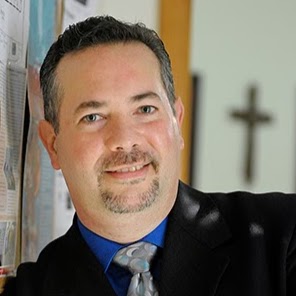When the Cooperative Baptist Fellowship of North Carolina needed someone to lead a conflict resolution workshop recently, they thought of Rubin Ortiz.
“I have kind of a Ph.D. in conflict resolution,” said Ortiz, pastor of La Primera Iglesia Bautista in Deltona, Fla.
Ortiz, also a former moderator of the CBF of Florida, said he’s experienced just about every kind of crisis throughout his pastoral career.
La Primera Iglesia Bautista was broken the day he arrived, its membership down to about 30 and directionless. In the 15 years since it has grown to nearly 300 — but only through tensions sparked by changes in meeting spaces, the use of technology, worship formats and market and housing crashes that forced scores of families to move away.
“Even my divorce” created tensions, he said.
So, Ortiz said, he agreed to lead “Resolviendo Conflictos en la Iglesia — How to Resolve Conflicts in the Church” during June’s national CBF General Assembly in Greensboro, N.C.
While the workshop offered many specifics, Ortiz said his overall message, especially to young ministers, is that conflict is inevitable because it is organic to the church.
“I am a firm believer that the church was created in crisis and for crisis,” he told Baptist News Global in an interview about the event.
Look at the New Testament, he said. The earliest Christians were either persecuted by authorities or were experiencing internal strife — or both. And when they fled to other areas, they experienced more persecution or theological division.
Conflict can even be found in some of the most sacred moments of a Christian’s life, he said.
“The moment of salvation is a moment of crisis,” he said. “You can see that person questioning his past, his future and what’s happening now — they are asking ‘why am I receiving this calling?’”
Ortiz said that for him, the conclusion is inescapable: pastors shouldn’t try to avoid conflict.
“It is in the DNA of the church to be in crisis,” he said.
Instead, their role is to be a calm, loving presence during periods of congregational turmoil.
“You need to be prepared because they need pastoral care throughout the conflict,” he said.
Living in reconciliation
One of the most important ways to be prepared is to foster an environment of communication on the staff and congregational levels, Ortiz said.
Ministers and lay people who feel safe expressing themselves in church during stable times will likely feel safer during difficult moments, he said.
And the lead pastor must lead by example in fostering that spirit, Ortiz said.
“The pastor needs to be present,” he said. “An absent pastor is the seed for conflict in the church.”
The church’s missions and goals must be clearly articulated year-round — in good times or in bad, he said.
“The big issue is communication. Everything is communication.”
“The big issue is communication. Everything is communication.”
The pastor’s spiritual health is also key his or her working through congregational disputes, Ortiz said. He recommended seeking outside help in the form of spiritual direction, personal coaching and mentors.
It’s also a good idea to regularly take the church through congregational coaching and visioning, Ortiz said.
“In this crazy world we need to review, every year or every two years, the vision of the church,” he said.
The CBF’s Dawnings program is an excellent tool for that, he said. Ortiz said his congregation will go through the process now that it’s been adapted to Spanish-language churches.
It’s also important that church leaders not leave for other jobs in the midst of crisis.
“Don’t run,” Ortiz said. “I know that if I leave a church in the middle of conflict, that will follow me and attack me. We are called to be peacemakers.”
And don’t try to go all out to resolve tension, he said.
“The final goal is not to resolve conflict but to learn how to live in the ministry of reconciliation,” Ortiz said.



